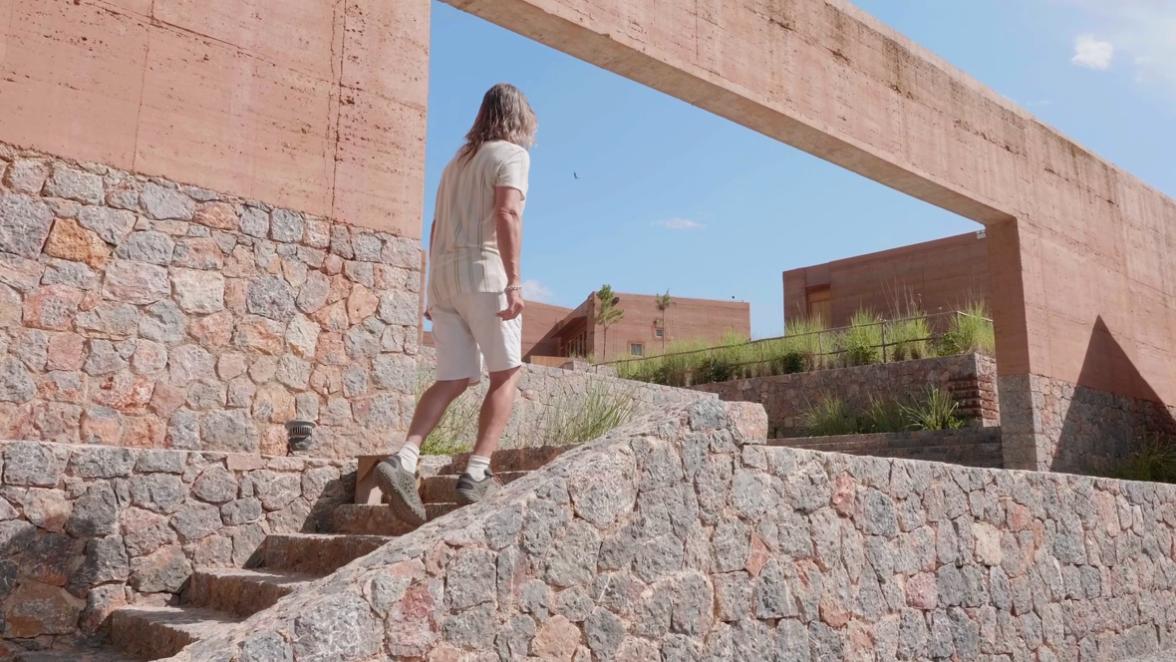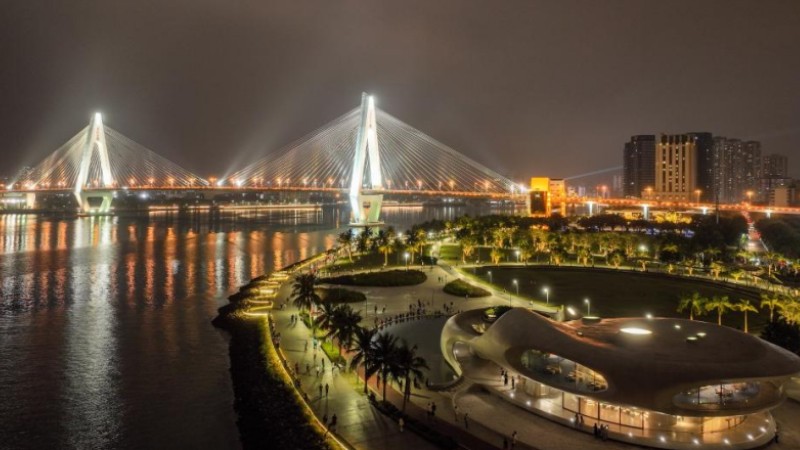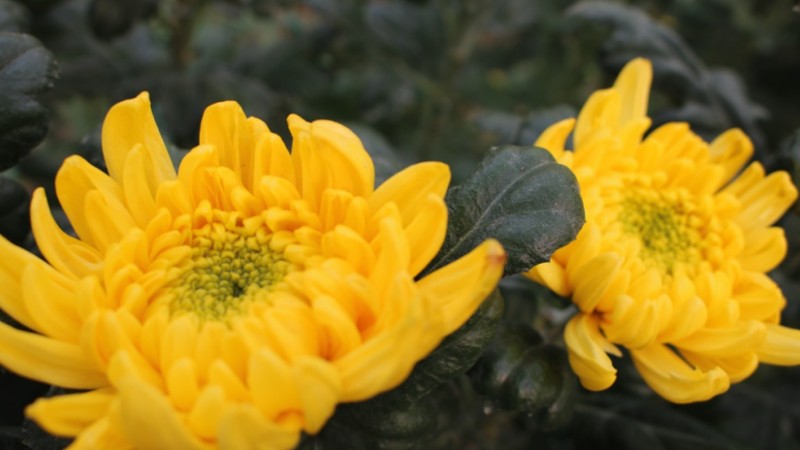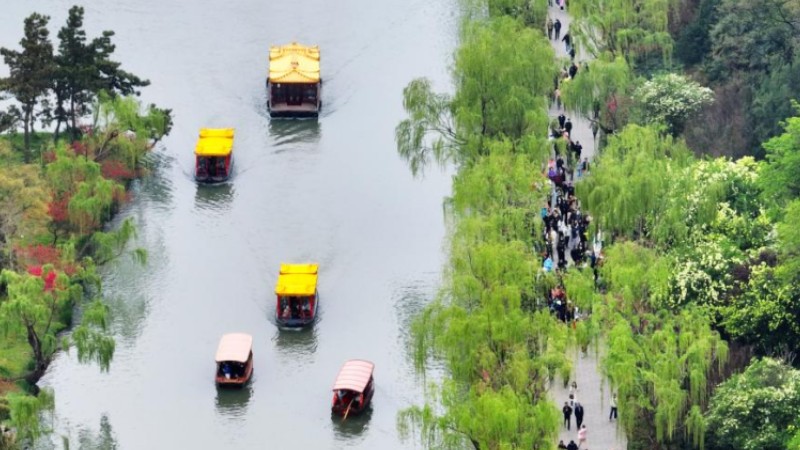Brian Linden: "I see a growth of optimism in China"
60-year-old American Brian Linden wears many hats: traveler, entrepreneur, educator, author, and founder of the Linden Centre. Having lived among rural people in Dali Bai Autonomous Prefecture of South China's Yunnan Province for decades, he now considers himself one of the "cool new Dali people."
Born and raised in Chicago, Linden first visited China in 1984. After working in and traveling to over 100 countries, he returned to China with his wife and two sons in 2003 to "find a place, and create a new lifestyle… China has always been in my heart, and it is just like my home".
Linden believes that alongside 40 years of China's economic miracle, the wisdom China has accumulated over the past 5,000 years is what we need to share with the outside world. And outside of China's big cities, the wisdom also resides in vast rural areas. That's how the man with long blonde hair settled in Xizhou – a short drive from Dali - where he restored a national heritage site and turned it into the Linden Center, a hotel and education hub. Linden later established several other boutique lodgings, all serving as bridges for intercultural and international exchanges.

Brian Linden walks up the stairs of Linden Center in Dali, southwest China's Yunnan Province. (Photo provided by the interviewee).
"I have seen improvements every year"
Over the last 18 years, Linden has witnessed unprecedented infrastructure development in Dali and throughout China, especially in the fields of transportation and medical care.
Back in 1985, it took him almost 12 hours to travel from Kunming, the capital of Yunnan, to Dali, but now thanks to high-speed rail, he can get to Kunming in two hours, have a dentist appointment, and come back to Xizhou the same day. The hospital in the city also has the same equipment he uses back in America.
Since China's poverty alleviation, even the deepest rural areas in the mountains of Dali can be accessed by newly constructed roads. "This allows everyone to have a quality of life that is increasingly similar," he said.
For him and his local villagers, "there is a belief that the excitement in Shanghai and Beijing is also happening here. Economic growth is slowly reaching us as well. We're going to be a part of that," he added.
Linden paid close attention to the 20th CPC National Congress: "One aspect I felt was very relevant to what we are doing here in rural Yunnan was China's openness to foreign investment. The model I created here demonstrates that areas outside the big cities are also open to business for foreigners."
The government's continued encouragement and support further bolstered his optimism: "I have gone on two important visits for new projects since the Congress. What I see is a level of support, and it doesn't matter who you are, whether a Chinese or a foreigner. The Linden Center's success is based on the government's openness and inclusiveness."
Linden thinks the outside world does not fully appreciate the efforts China has made in poverty alleviation. "It makes the locals able to dream. And their dreams are becoming larger and more ambitious. It's hard not to be seduced by this optimism and hard work," he noted.
Most of Linden's farmer friends now expect their children to attend universities: "Coming from a fairly modest background in America, that is not common in my country. And yet here I am in a small agricultural village in rural Yunnan. This is amazing. Locals are so confident that their children will have a better life than they will… I have seen every year an improvement," he added.
"Making the rural areas attractive to everyone"
Tourism also binds locals tightly to their hometowns.
Linden witnessed the Dali government's struggle to improve the environment of Erhai Lake, and was happy to see the achievements made. "Balancing environmental protection and economic growth is difficult in any situation in any country. I'm very proud that the government is willing to take on the pressure, and unfortunately some political backlash, for the benefit of our future generations. They are making the rural areas increasingly attractive to everyone," he said.
Today, an "ecological corridor" has been built along the lake, an achievement that Linden marvels at: "I have never seen such a beautiful hiking trail along the lake. Ordinary people are now riding their bicycles and enjoying the view."
He recalled that 18 years ago, many of his local friends chose to go to China's metropolises, like Guangdong, to look for work, as there were no opportunities in the village. But now, with tourism booming in Dali, there are much better prospects for work.
Being able to cater to tourists for a living also instills pride in the locals. The younger generation now wants to "be a part of this future," and are no longer leaving their homes for big cities. "They are starting to look at their own lives in a different way," Linden said. The pride among the local people has always been the inspiration for his business efforts here.
His sites also offer classes and seminars that teach the local architecture, customs, religion, and artisan craftsmanship, aiming to tell real stories and share China's wisdom, to "make people see what China is, where it's come from, and how proud I am."

Brian Linden and his wife Jeanee walk amidst paddy fields in Xizhou, southwest China's Yunnan Province. (Photo provided by the interviewee).
"It's cool to be a Dali person"
Thanks to its unique geographical location, Yunnan has always been a crossroads for trade. Influenced by South Asia, Southeast Asia, and Han culture, Dali is also home to the Bai people, which provides a diversified environment for its residents.
As more talents go back to make contributions to their hometowns, they also bring in creative ideas and an entrepreneurial spirit. Everybody is put into this "pot," Linden said, akin to the melting pot that the US is often called.
Linden sees Dali as a metaphor for China's role in the outside world. "It is one of the greatest examples of inclusiveness," he said.
"In Dali, I became a 'Dali person,' and the Dali people have embraced me, as if I'm part of the same family," Linden said. "Everybody is almost equal here, and there are no 'foreigners.' We all go beyond our identity and certain beliefs, becoming one family, just like the idea of 'human community with a shared future'."
China is already demonstrating an inclusiveness, hospitality and curiosity which Linden feels is commendable. "Its soft power is 'How happy we are to have friends from afar,' (as Confucius once said.) That seed is still in every Chinese person's heart. China has made plenty of efforts (to show itself to the world), and the rest of the world should also start to catch up with China and try to understand it better."
The new lifestyle is making Dali cool again. "It's cool to stay here and be a Dali person," Linden said.
Photos
Related Stories
- Peony cultural tourism festival kicks off in Wuding, SW China’s Yunnan
- Digitalization spurs modernization of flower industry in SW China’s Yunnan
- An American finds his sense of home in southwest China’s Yunnan
- Baby Phayre's leaf monkey cuddles with parents in SW China’s Yunnan
- SW China’s Yunnan promotes integration of tourism with other industries
Copyright © 2023 People's Daily Online. All Rights Reserved.









